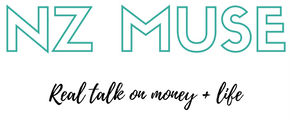
When I interviewed for this job, I was pretty confident I had the skills required. I was mostly concerned with how to figure out whether it would be a good fit for me.
Rather than rehearsing answers, I spent a lot of time thinking about what kinds of questions I could ask to pinpoint whether this would be the right move and what the culture was like. I was quite conflicted about whether I should even be interviewing for it.
Did I mention I’m not experienced at interviewing at all? My last job was a warm lead; I already knew them well so the interview was informal and there were no reference checks. My first job grew from a part-time job, which in turn grew out of an internship. So I’d never been through an actual structured interview before.
Some of the questions I struggled with:
Discussing projects and my role in pulling them off
I don’t come from a project-based background. The nature of my workflow means that it’s pretty constant. I suppose on a micro level, you could say I go through a lot of mini projects – every newsletter, every piece of writing, every photo shoot I coordinate. Luckily, I have gotten to work on a couple of initiatives over the past years – the joys of a lean team – that were often a pain in the ass but provided valuable work experience.
What I said: Rambled a little about one initiative I was a part of, struggled to quantify my contributions.
What I should’ve said: Next time I’d prepare and practice with one or two examples and try to put some numbers or specifics to it. My workflow will be much more project-based going forward so I plan to keep notes along the way for my own records.
Describing my communication style
What I said: I described my communication style as collaborative – I’m good at taking on board and weighing up various perspectives.
What I should’ve said: In hindsight, and after doing a little research, in the future I’d also add that I listen more than I talk, am stronger in written communication, and while I value input from others I often do my best work alone.
Describing my ideal manager’s style
What I said: My ideal manager provides clear guidance/objectives upfront, offers support when asked for and when they sense it’s needed, and champions their team and their team’s work. (The best bosses are the ones who trust you to get the job done and leave you alone to do it, IMO.)
What I should’ve said: I’m still thinking on this one. I feel there’s plenty of room for improvement, but not sure how specifically. Any thoughts?
Describing the kinds of people I get along best with – and the ones I don’t
What I said: I get along with most people. I am not a fan of close-minded types who are always convinced they’re right and aren’t open to other viewpoints.
What I should’ve said: A better answer in the future, especially in a professional context, would probably be that I take issue with the type of person who is a talker and not a doer, a ‘not my job’ type, who isn’t committed to going the extra mile when needed. In short, people who don’t share my work ethic. Coming from a background where resources are always thin and passion plays a big part, I expect the same sort of standards from others. I’m big on work-life balance, but when you’re at work, I think it’s important to do what it takes to get the job done.
What kinds of interview questions do you struggle with? Any thoughts on answering some of these?
The form you have selected does not exist.



I love some of the answers you have here! I particularly agree with your assertion about work/life balance – it’s not about blending, it’s about being fully present in the environment that you’re in so that you can get the most value for your time.
Good introspection on those questions. I think your ideal manager response was good. Perhaps you could embellish it to say good manager knows when to stay away and let you get on with the job but senses when you may be struggling and need some support. (Situational Management is the industry term they use for this).
But you got the job so it’s all good! 😉
I always have struggled with the, “Why do you want to work for us?” question. Other than the fact that I need a job that pays decent? (Which is always the answer inside my head.) I think that question, along with, “Why should I hire you?” will forever be my downfalls, though I will admit that the last time I answered the 2nd question, I got the job.
I always struggle with “why do you want this job?” In my head I’m thinking “I don’t really want to babysit your snotty children but I need a job” :/